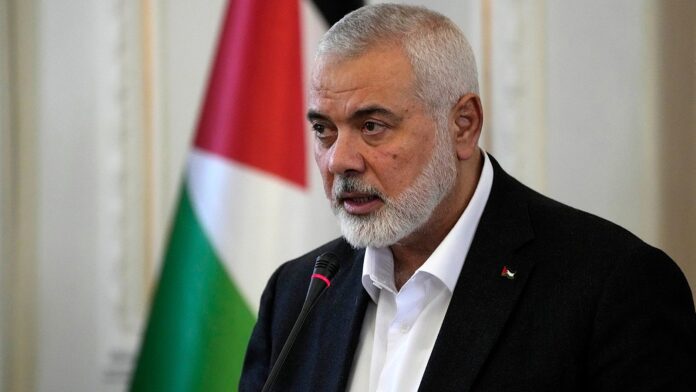In a significant development, Israeli Defense Minister Israel Katz confirmed for the first time that Israel killed Hamas political leader Ismail Haniyeh in Tehran during an operation in July. The acknowledgment came as Katz vowed to extend Israel’s campaign against Iran-backed groups, targeting Houthi leaders in Yemen following their recent attacks on Israeli and international interests in the Red Sea.
Haniyeh, widely regarded as Hamas’s overall leader, was killed in an Israeli attack on a building in the Iranian capital. The incident marks a dramatic escalation in Israel’s covert operations against figures linked to Iran-backed militant groups. Katz’s speech reiterated Israel’s commitment to “strike hard” at its adversaries, stating, “Just as we did with Haniyeh, [Yahya] Sinwar, and [Hassan] Nasrallah in Tehran, Gaza, and Lebanon, we will do so in Hodeida and Sanaa.”
This follows the killing of Hamas’s Gaza leader Yahya Sinwar and Hezbollah leader Hassan Nasrallah earlier this year. Sinwar, who succeeded Haniyeh after his assassination, was killed by Israeli forces in October. Meanwhile, Nasrallah was eliminated in Beirut amid intensifying conflict between Israel and Hezbollah following the deadly October 7 attacks on Israel by Hamas.
Escalating Conflict in Gaza and Beyond
The situation in Gaza remains dire, with Israeli military operations continuing in response to Hamas’s October 2023 assault, which killed approximately 1,200 Israelis and resulted in 251 hostages. Over the past year, the retaliatory campaign has caused over 45,000 deaths, according to Gaza’s Hamas-run health ministry. Israel claims its strikes are focused on dismantling Hamas’s infrastructure, though humanitarian organizations report devastating impacts on civilians.
Most recently, Hamas officials stated that Israeli airstrikes killed 58 people in the last 24 hours, including 11 in the al-Mawasi area—a location previously designated as a “safe zone” by Israeli authorities. Israel claims these operations targeted Hamas fighters regrouping in these areas.
On the Israeli side, three soldiers were reported killed in northern Gaza. The protracted conflict has also extended to maritime domains, with the Iran-backed Houthi movement launching missile strikes at Israeli and international vessels in the Red Sea. A missile launched from Yemen struck Tel Aviv over the weekend, marking a significant escalation. The Houthis claimed responsibility, asserting that they would continue their operations until Israel’s campaign in Gaza ends.
In response, Israel has conducted strikes on Houthi military targets in Yemen, including energy infrastructure and ports. The US and UK have joined efforts to counter Houthi threats, launching their own strikes as part of operations to protect international shipping routes.
Humanitarian Concerns and Accusations of Genocide
The prolonged conflict has precipitated a severe humanitarian crisis in Gaza. Oxfam recently reported that only 12 trucks of food and water were distributed in northern Gaza over two-and-a-half months, alleging deliberate obstruction by Israeli forces. Rights groups, including Amnesty International and Human Rights Watch (HRW), have accused Israel of committing acts of genocide by restricting access to essential resources like water and food. Amnesty described the situation as “genocide,” while HRW highlighted systematic efforts to deprive civilians of basic necessities.
Israel has vehemently denied these allegations. The Israeli foreign ministry dismissed Amnesty’s report as “entirely false and based on lies,” while labeling HRW’s accusations as “blood libels.” Israeli officials emphasized their ongoing efforts to provide humanitarian aid in northern Gaza, including the delivery of food, water, and medical supplies to areas such as Beit Hanoun, Beit Lahia, and Jabalia. These efforts, they claim, are aimed at mitigating civilian suffering while combating Hamas forces.
Ceasefire Negotiations Continue
Meanwhile, diplomatic efforts to secure a ceasefire between Israel and Hamas are reportedly advancing, with Israeli Prime Minister Benjamin Netanyahu stating that some progress has been made. However, he refrained from providing a timeline, citing unresolved issues. A senior Palestinian official disclosed that negotiations are “90% complete,” though key sticking points persist.
The stakes remain high as Israel balances its military objectives with mounting international pressure to address the humanitarian crisis in Gaza. With the conflict spilling into neighboring regions and a potential ceasefire still uncertain, the Middle East faces an escalating cycle of violence and instability.

